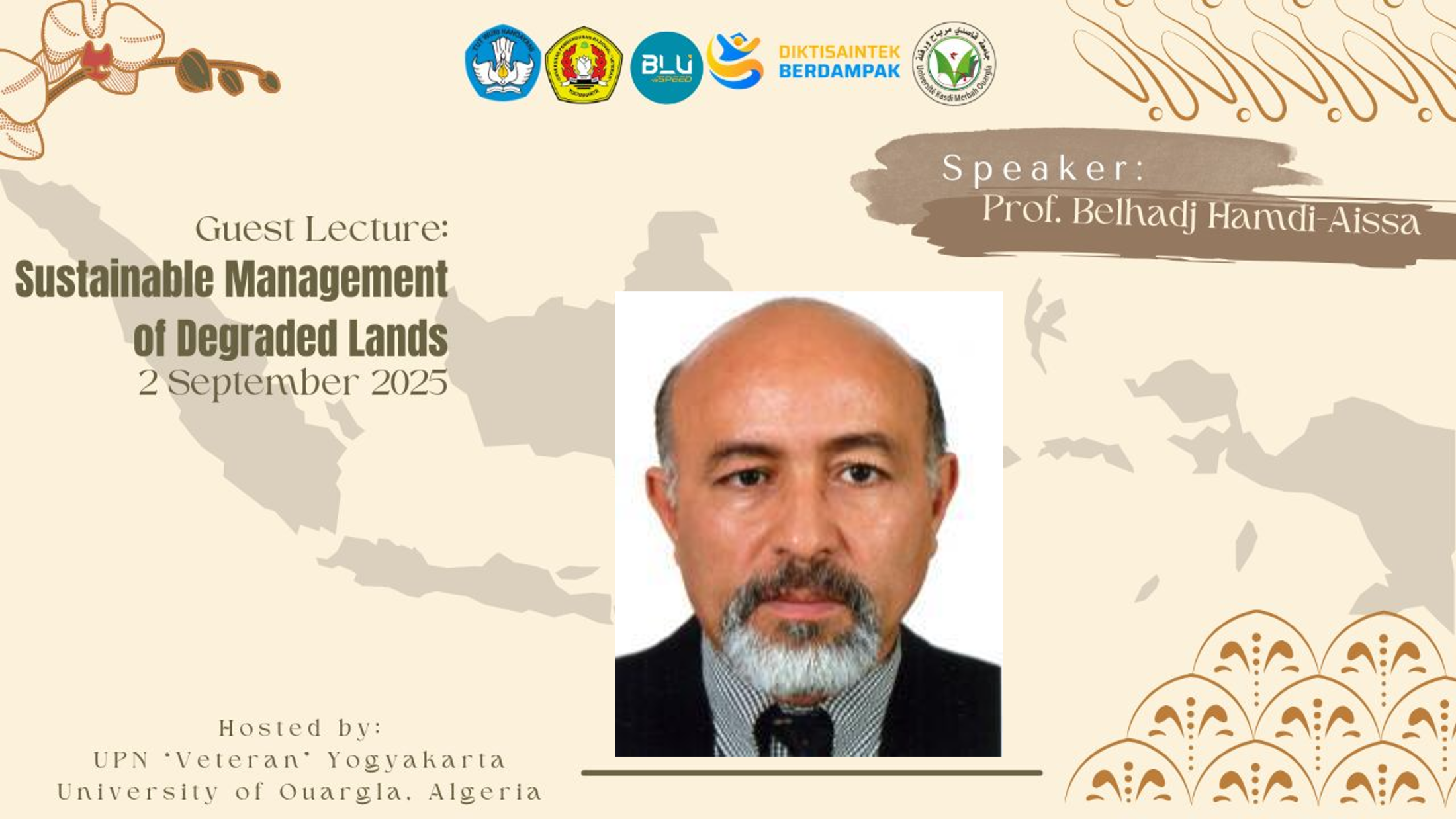02 September 2025 - 14:21
Oleh : Admin
Yogyakarta, September 2, 2025 – How to maintain soil fertility in dry and water-scarce areas? This question was the topic of a public lecture entitled "Soil Conservation in an Arid Environment" held by the Faculty of Agriculture, Universitas Pembangunan Nasional "Veteran" Yogyakarta (UPNVY).
This lecture featured Prof. Dr. Baelhadj Hamdi Aissa, an agronomy and soil science expert from the University of Ouargla, Algeria. He shared his knowledge and experience on the challenges and opportunities in managing soil in arid regions.
Why Are Arid Regions Important?
Did you know that nearly half of the Earth's land area is arid? According to Prof. Hamdi, these arid regions are home to more than 2.5 billion people and contribute nearly half of the world's food needs. Unfortunately, these regions are vulnerable to drought, climate change, and soil degradation.
One major problem faced is desertification, or the process of turning fertile land into barren land. Each year, approximately 24 billion tons of fertile soil is lost due to environmentally unfriendly agricultural practices, deforestation, and the effects of extreme climates.
Furthermore, wind erosion is also a major challenge. Dry, sandy soil easily blows away, carrying with it vital nutrients. "In Iran, wind erosion has increased by 30% due to climate change," explained Prof. Hamdi. The impact is not only on agricultural land, but also on human health due to dust.
Fortunately, there are various ways to combat soil degradation:
- Natural barricades – Planting palm trees or other vegetation to block wind gusts.
- Physical barricades – Installing sand barriers to prevent dunes from moving easily.
- Revegetation – Replanting native plants to further protect the soil.
- Biological Soil Crusts (Biocrusts) – Layers of microorganisms such as algae, mosses, and bacteria that adhere to the soil surface, helping to prevent erosion.
In addition to erosion, there is also the problem of salinization, the accumulation of salt in the soil due to saltwater irrigation or high evaporation. If not managed properly, the soil will lose its productivity. Solutions include proper drainage systems and salt leaching.
"Arid regions are indeed full of challenges, but they also play a vital role in global food security. With research and innovation, we can keep the soil productive and sustainable," concluded Prof. Hamdi.
This public lecture opened new insights, especially for students and lecturers of the UPNVY Faculty of Agriculture, about the importance of preserving soil in dry regions so that it continues to support the lives of billions of people worldwide.
 EN
EN ID
ID

